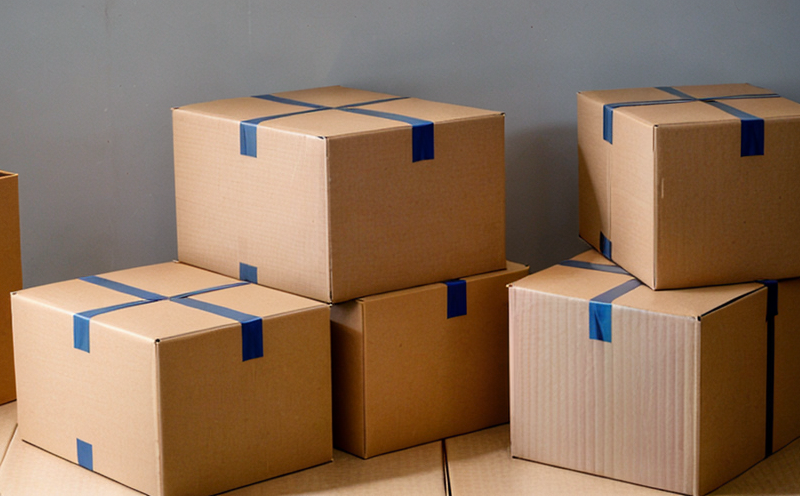ISO 24812 Adhesive Residue Testing in Food Contact Laminates
The testing of adhesive residues in food contact laminates is a critical process to ensure that products meet stringent safety and regulatory requirements. This service adheres strictly to ISO 24812, which provides guidelines for the determination of free monomers and residual solvents in adhesives used in direct food packaging materials.
The testing aims to identify any potential migration of adhesive residues into foodstuffs during storage or use. The importance of this cannot be overstated, given that even trace amounts can have adverse effects on human health. By adhering strictly to ISO 24812, we ensure the accuracy and reliability of our findings.
The testing process typically involves the extraction of adhesive residues from the laminate using a suitable solvent. The extracted solution is then analyzed for free monomers and residual solvents through various techniques such as Gas Chromatography-Mass Spectrometry (GC-MS) or High Performance Liquid Chromatography (HPLC). These methods are chosen based on their sensitivity, specificity, and the analytical capabilities of our laboratory.
The selection of appropriate extraction solvents is critical to ensuring accurate results. Common solvents used include methanol, acetone, and ethanol. The choice depends on factors such as the type of adhesive, the nature of the packaging material, and the specific requirements of the client. Once extracted, the samples are analyzed for their compliance with regulatory limits set by international standards like ISO 21557-1.
The testing process is not only about meeting regulatory standards; it also involves understanding real-world conditions under which food contact materials may be used. This includes considering factors such as temperature variations during storage, exposure to light, and potential interactions with other packaging components. Our team of experts works closely with clients to ensure that the testing accurately reflects these scenarios.
The results of our ISO 24812 testing are presented in comprehensive reports that include detailed information on the extracted substances, their concentrations, and any deviations from acceptable limits. These reports are invaluable tools for quality managers and compliance officers who need to make informed decisions about product safety and regulatory compliance.
Our laboratory ensures the highest standards of accuracy and reliability through rigorous quality control measures. This includes regular calibration of instruments, participation in proficiency testing programs, and continuous training of our technical staff. By adhering strictly to ISO 24812 and using state-of-the-art equipment, we provide clients with confidence that their products are safe for use in food contact applications.
In addition to the technical aspects of the testing process, we also offer consultation services to help our clients understand the implications of the test results. Our experts can assist in interpreting the data and providing recommendations on how to improve product safety or compliance.
- Comprehensive Reporting: Detailed reports that provide a clear understanding of the extracted substances and their concentrations.
- Regulatory Compliance: Ensures strict adherence to ISO 24812 standards for free monomers and residual solvents in adhesives used in food contact materials.
- Precision Instrumentation: Utilizes advanced analytical techniques such as GC-MS and HPLC to ensure accurate results.
- Client Consultation: Provides expert advice on interpreting test results and improving product safety or compliance.
Eurolab Advantages
At Eurolab, we pride ourselves on delivering high-quality, reliable testing services that exceed industry standards. Our advantages include:
- Expertise and Experience: Our team of experts has extensive experience in food contact material testing.
- Innovative Techniques: We utilize the latest technologies and techniques to ensure accurate and precise results.
- Comprehensive Reporting: Detailed reports that provide a clear understanding of the extracted substances and their concentrations.
- Client Consultation: Offers expert advice on interpreting test results and improving product safety or compliance.
- Regulatory Compliance: Ensures strict adherence to ISO 24812 standards for free monomers and residual solvents in adhesives used in food contact materials.
- Rigorous Quality Control: Regular calibration of instruments, participation in proficiency testing programs, and continuous training of technical staff.
- Client Satisfaction: Focuses on delivering results that meet or exceed client expectations.
We are committed to providing the highest level of service to ensure that your products are safe for use in food contact applications. Contact us today to learn more about our services and how we can assist you with ISO 24812 testing.
Quality and Reliability Assurance
At Eurolab, quality and reliability assurance are at the heart of everything we do. We have implemented stringent quality management systems to ensure that all our services meet the highest standards. Our commitment to excellence is reflected in:
- Rigorous Quality Control: Regular calibration of instruments, participation in proficiency testing programs, and continuous training of technical staff.
- Client Satisfaction: Focuses on delivering results that meet or exceed client expectations.
- Innovation: Utilizing the latest technologies and techniques to ensure accurate and precise results.
- Expertise and Experience: Our team of experts has extensive experience in food contact material testing.
We are dedicated to providing reliable, high-quality services that meet or exceed international standards. Contact us today to learn more about our services and how we can assist you with ISO 24812 testing.





